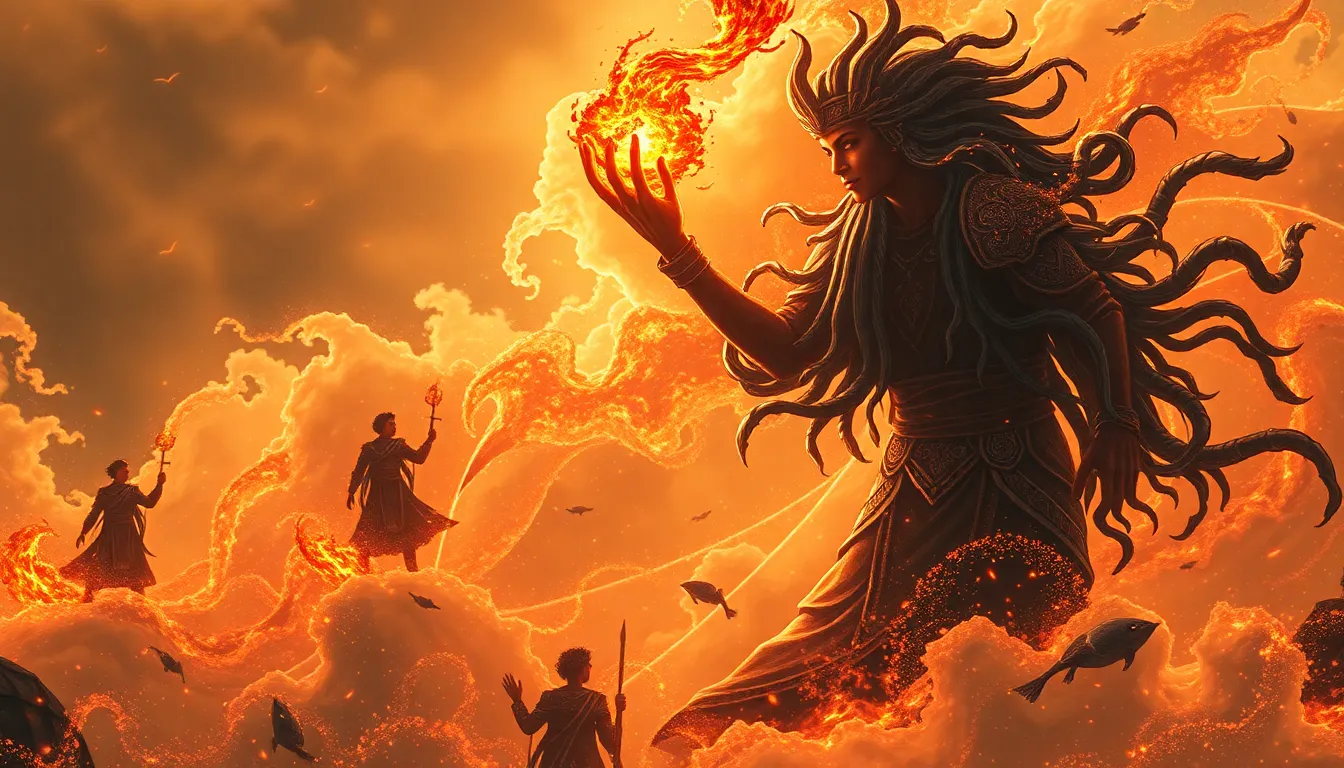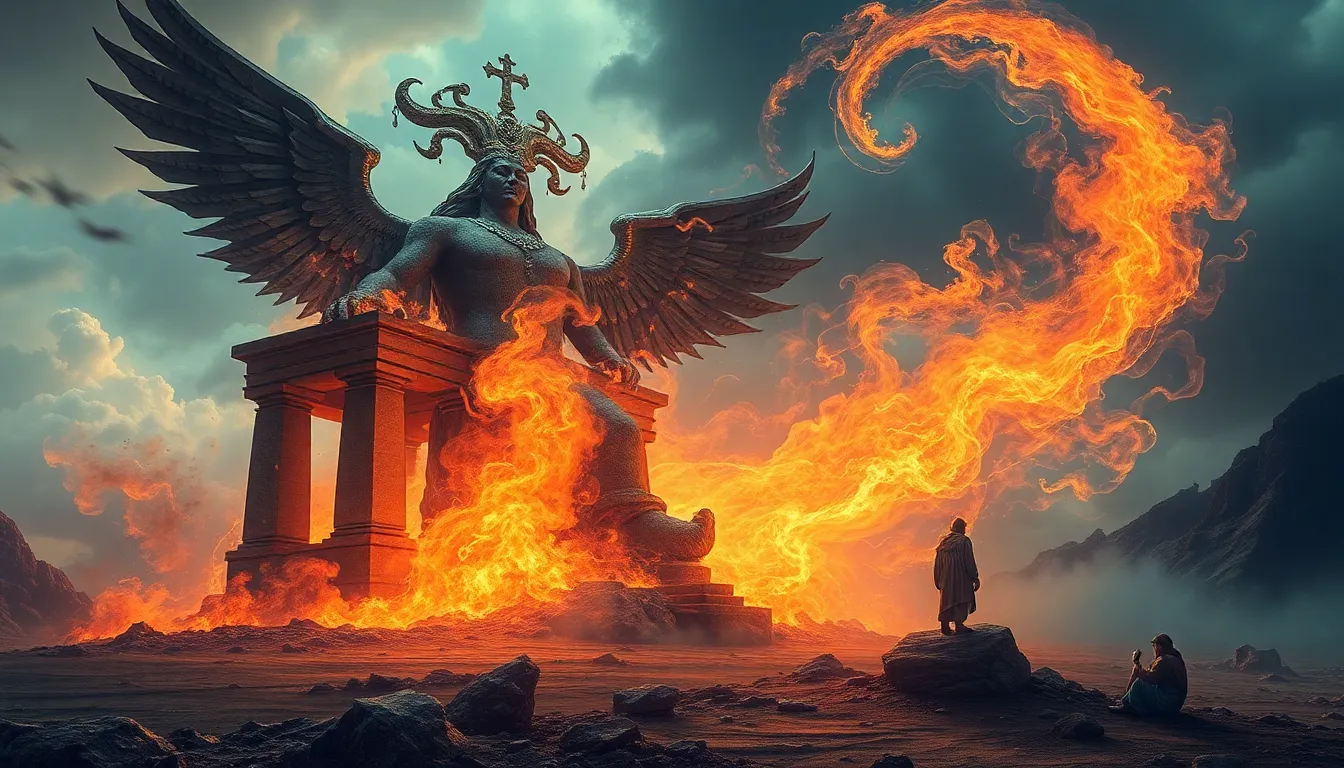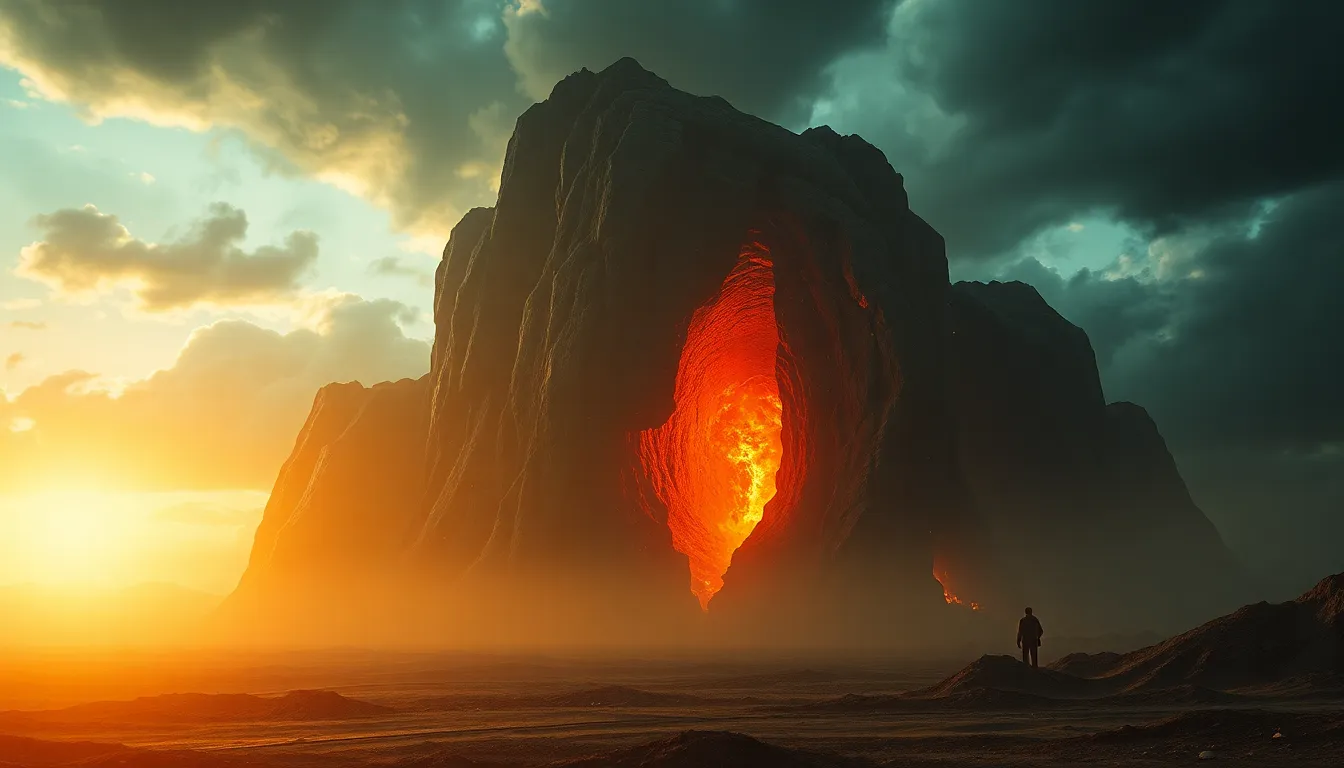Cultural Hero Myths: The Stories That Inspire Change
I. Introduction
Cultural hero myths are narratives that celebrate extraordinary individuals who overcome adversity, embody societal values, and inspire change within their communities. These stories often serve as a moral compass for societies, illustrating ideals such as bravery, resilience, and justice.
Storytelling has been integral to human experience, shaping cultures and influencing individual behaviors. Hero myths encapsulate the essence of a culture’s values and aspirations, offering a framework to understand struggles and triumphs.
This article explores how these myths not only reflect cultural values but also inspire action and change across generations.
II. The Elements of a Hero Myth
A. Characteristics of a Cultural Hero
Cultural heroes often possess certain traits that make them stand out, including:
- Bravery: Willingness to confront danger or adversity.
- Integrity: Adherence to moral and ethical principles.
- Selflessness: Putting the needs of others before their own.
- Transformative impact: Ability to effect change in society.
B. Common Narrative Structures in Hero Myths
Hero myths typically follow a recognizable structure, including:
- The call to adventure: The hero is summoned to face challenges.
- The ordeal: Trials that test their character and resolve.
- The transformation: The hero grows and learns from their experiences.
- Return: The hero returns, often bringing knowledge or change to their community.
C. Symbolism and Archetypes Associated with Heroes
Hero myths are rich in symbolism and archetypes, often representing:
- The Mentor: A wise figure who guides the hero.
- The Shadow: Represents the hero’s fears or the darker aspects of humanity.
- The Threshold Guardian: Obstacles that test the hero’s resolve.
III. Historical Context of Hero Myths
A. The Role of Hero Myths in Ancient Civilizations
In ancient civilizations, hero myths served to reinforce social norms and cultural values. They often reflected the ideologies of the time and provided models for behavior. For instance, Greek myths shaped concepts of honor and valor, while Mesopotamian tales emphasized the struggle between order and chaos.
B. Evolution of Hero Myths Through Different Cultures
As societies evolved, so did their hero myths. What was once celebrated in one culture may transform in another, reflecting new values and ideals. For example, the figure of the hero in Norse mythology contrasts with that of the hero in African folklore, highlighting different societal priorities and contexts.
C. The Impact of Folklore and Oral Traditions on Hero Narratives
Oral traditions have played a significant role in preserving hero myths. Through storytelling, cultures transmitted moral lessons and historical events, ensuring that hero narratives adapted but remained relevant. These tales often served as educational tools, instilling values in young listeners.
IV. Case Studies of Prominent Cultural Hero Myths
A. Greek Heroes: Hercules and His Trials
Hercules, renowned for his strength and courage, exemplifies the hero myth through his Twelve Labors. Each labor represents a formidable challenge that tests his character and perseverance, culminating in a narrative of redemption and divine favor.
B. Indigenous Heroes: The Story of Nanabozho
In many Indigenous cultures, Nanabozho is a trickster hero who embodies the duality of creation and destruction. His stories teach valuable lessons about respect for nature and the interconnectedness of all life, highlighting the importance of wisdom and humility.
C. Modern Heroes: Nelson Mandela and the Fight for Equality
Nelson Mandela’s journey from prisoner to president symbolizes the fight against racial oppression. His sacrifices and leadership during the anti-apartheid movement serve as a modern hero myth that inspires generations to combat injustice and advocate for equality.
V. The Psychological Impact of Hero Myths
A. How Hero Myths Shape Individual Identity
Hero myths influence personal identity by providing relatable figures who embody aspirational qualities. Individuals often draw inspiration from these heroes, shaping their values and life choices based on their narratives.
B. The Collective Unconscious and Shared Cultural Narratives
Psychologist Carl Jung proposed the idea of the collective unconscious, where shared symbols and archetypes resonate across cultures. Hero myths tap into this shared understanding, allowing individuals to connect with broader human experiences.
C. The Influence of Hero Myths on Moral and Ethical Frameworks
Hero narratives often serve as moral guides, illustrating what is right and wrong. They help establish ethical frameworks that influence societal norms and individual behaviors, reinforcing the values that heroes embody.
VI. Hero Myths and Social Movements
A. The Role of Hero Narratives in Inspiring Activism
Hero myths play a critical role in motivating social movements. They provide narratives that inspire action, unite individuals around common goals, and galvanize communities to pursue justice.
B. Case Studies: The Civil Rights Movement and Gandhi
Figures like Martin Luther King Jr. and Mahatma Gandhi exemplify hero myths within social movements. Their commitment to nonviolent resistance and equality transformed societies and inspired countless individuals to join the fight for justice.
C. The Resurgence of Hero Myths in Contemporary Social Justice Movements
In recent years, the resurgence of hero narratives has been evident in movements such as Black Lives Matter and climate activism. These movements draw upon historical hero myths to inspire action and reinforce their legitimacy.
VII. The Role of Media and Technology in Shaping Hero Myths
A. How Film, Literature, and Digital Media Reinterpret Hero Myths
Modern media has the power to reinterpret and disseminate hero myths. Films, literature, and digital platforms can reshape narratives, making hero stories accessible to diverse audiences and adapting them to contemporary issues.
B. The Impact of Social Media on the Dissemination of Hero Narratives
Social media amplifies hero narratives, allowing individuals to share stories of everyday heroes and movements. This democratization of storytelling enables new voices to emerge, reshaping what it means to be a hero.
C. New Heroes in the Age of Information: Greta Thunberg and Climate Action
Greta Thunberg represents a new kind of hero in the climate movement, using social media to mobilize youth and advocate for environmental change. Her story exemplifies how modern heroes can emerge and inspire global action through digital platforms.
VIII. Critiques and Controversies Surrounding Hero Myths
A. The Potential for Hero Myths to Oversimplify Complex Issues
While hero myths can inspire, they also risk oversimplifying complex social issues. The reduction of multifaceted problems into a single hero narrative may obscure the contributions of many individuals and the systemic nature of challenges.
B. The Dangers of Idolization and the Fallibility of Heroes
Idolizing heroes can lead to disillusionment when they inevitably fall short of societal expectations. Recognizing heroes as flawed individuals allows for a more nuanced understanding of their contributions and challenges.
C. Cultural Appropriation and the Misrepresentation of Heroes
As hero narratives cross cultural boundaries, issues of cultural appropriation and misrepresentation arise. It is essential to honor the origins of these stories and ensure that they are told authentically and respectfully.
IX. The Future of Cultural Hero Myths
A. Emerging Narratives in a Globalized World
In a globalized world, new hero narratives are emerging, reflecting diverse experiences and challenges. These stories often highlight the interconnectedness of global issues, fostering solidarity across cultures.
B. The Role of Diversity and Inclusion in Contemporary Hero Myths
Diversity and inclusion are critical in shaping contemporary hero myths. By amplifying underrepresented voices, societies can create a more comprehensive and relatable understanding of heroism.
C. How Future Generations Can Shape and Redefine Hero Narratives
Future generations have the power to redefine




